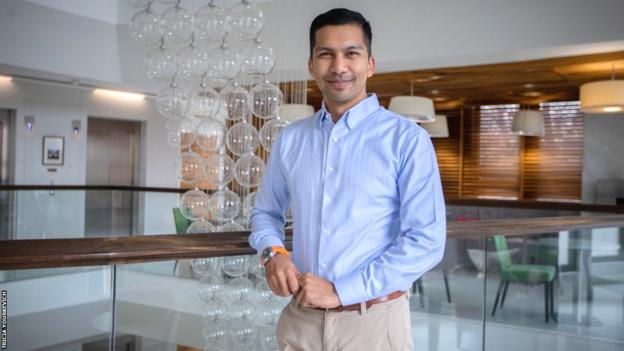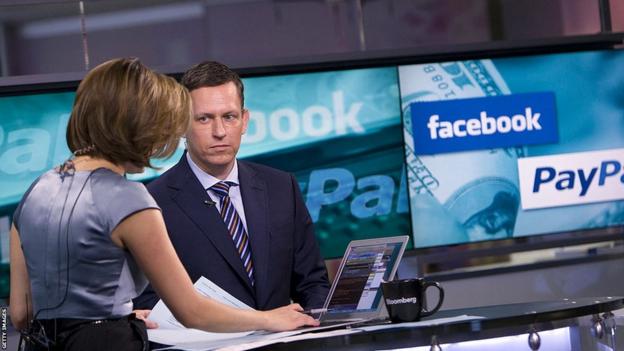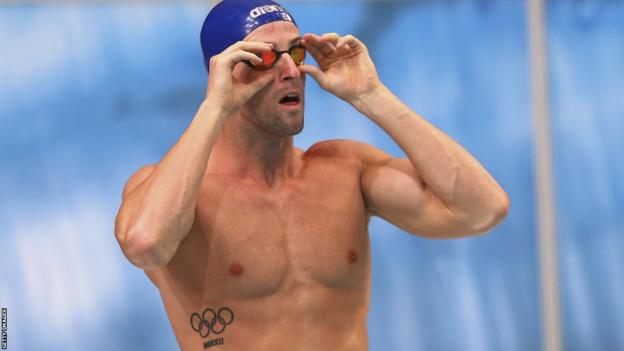

Move fast and break things.
In the early years of the new millennium, as Mark Zuckerberg was turning Facebook from dorm room hustle into a ground-breaking billion-dollar company, he adopted a motto.
He told colleagues to act first and apologise later. Old orthodoxies should be shattered, rivals dented and establishment egos bruised in pursuit of a project that justified it all.
It became the disrupter’s mantra, a philosophy that could turn a bright idea into a glittering fortune in a twinkle.
Now, Aron D’Souza is making the same offer to the world’s best athletes.
The Enhanced Games has put million-dollar bounties on world records: move fast, break records and you can earn big.
The catch that has hooked headlines around the world is that competitors can use performance-enhancing drugs to do so.
The Enhanced Games, which plans its first edition for 2025, will have no drug testing. It will be a pharmaceutical free-for-all, with participants free to pump, juice and dope however they see fit.
Plenty say it shouldn’t happen.
Travis Tygart, the chief executive of the United States Anti-Doping Agency, has called it “a dangerous clown show”. Two-time Olympic champion Kieran Perkins said it was “borderline criminal”. World Athletics president Lord Coe was uncharacteristically (and unrepeatably) blunt when asked his opinion.
Others say that it won’t happen anyway, that the logistics and legalities are insurmountable. They believe the Enhanced Games is a provocation or a publicity stunt, rather than a realistic prospect.
But D’Souza is adamant.
“It will happen,” says the Enhanced Games founder.
“I wouldn’t dedicate my life, years of my team’s lives and millions of dollars from the world’s greatest investors unless we truly believe we can deliver the event, break world records and fundamentally change the trajectory of not just sport, but humanity as a whole.
“We are doing something truly extraordinary, something that is shaping the future.”
It is an audacious pitch. But it isn’t De Souza’s first.

In 2009 the Australian was a 24-year-old law student, newly arrived at Oxford University. He already had a couple of degrees. What Oxford could offer, though, was connections.
“I love Oxford very deeply,” says D’Souza. “I met billionaires, CEOs and heads of state there, by the drove.”
One of the first, and most significant, was Peter Thiel. The American billionaire and founder of digital payments giant Paypal was visiting Oxford to give a talk. Afterwards Thiel toured the university’s colleges and D’Souza joined him.
As their conversation progressed, D’Souza asked Thiel what his greatest current challenge was.
Thiel didn’t talk about business, but a more personal concern. Gawker, a website that specialised in celebrity gossip, had written an article outing him, without his consent, as gay.
Thiel explained that he had considered suing, but didn’t want to draw more attention to the site and its story.
Another option was to buy Gawker, get rid of the people responsible and change its ethos. However, to do so would reward its owners with a fat pay-off.
D’Souza listened and politely suggest a third option. Could Thiel instead secretly fund someone else’s legal case against Gawker?
“I said ‘Why don’t you have a proxy war?’,” says D’Souza. “He had never thought of that. I said I had to do some research, figure out the legality and mechanics and next time he was over we could have a coffee and talk about it.”
A few weeks later, in a high-end restaurant in Berlin, D’Souza, still very much a student, laid out his plan. To find a case, build a legal team, and sue Gawker into bankruptcy would take five years and 10 million dollars. Thiel had only one question.
“Peter said, ‘That’ll be great. Where do I wire the money?’ That was it,” remembers D’Souza.
“That changed everything in my life.”
D’Souza duly delivered.
In March 2016 former wrestler Hulk Hogan won $115m (£79m) in damages from Gawker after they published a video of him having sex with a friend’s wife.
Gawker, torpedoed by the judgement, shut down five months later.
Behind it all, secretly pulling the strings and opening the purse, were D’Souza and Thiel.
Their partnership has continued through other ventures and now the Enhanced Games.
Thiel was the star name in the Enhanced Games’ January announcement of a trio of big-tech investors.
There is a financial logic to Thiel’s backing.
New money has shaken sport in the past few years. A World Cup in Qatar, Saudi Arabia-backed LIV Golf’s spectacular splitting of a sport, the abortive launch of the European Super League and the continuing rise in broadcasting rights prices were all on D’Souza’s mind as he locked himself away in a Miami penthouse in December 2022 to draw up a business plan.
But, for Thiel, the appeal of the Enhanced Games is deeper.
The 56-year-old has long held libertarian views, suspicious of restrictions on individual freedoms. He has previously explored the idea of a creating a new floating city in international waters, outside the jurisdiction of any nation state.
More recently, like several Silicon Valley tycoons, he has focused on longevity, funding research into anti-ageing technology and signing himself up to be cryogenically frozen.
The Enhanced Games chimes with both passions.
“Peter is very invested,” says D’Souza.
“He invests in 100-300 companies a year, managing tens of billions of dollars of assets across many different asset classes and funds, but most of them are just boring.
“This inspires discussion and engagement and is so aligned with what he wants to achieve – he wants to cure ageing.
“The Enhanced Games can turn humans into superhumans. It sounds like science fiction but this new kind of superhumanity is possible within our lifetime.
“On a fundamental, philosophical level we have the ability to overcome the weakness of our feeble biological forms and become something more.”
So far, D’Souza has one athlete – former Australian world champion swimmer James Magnussen – signed up to dive into the petri dish.

D’Souza hopes to recruit more high-profile names after the Paris Olympics in August, with fields in athletics, swimming, weightlifting, gymnastics and combat sports filled out by hopefuls who will initially audition by uploading footage of themselves going through drills.
Two factors mean his enthusiasm isn’t replicated everywhere.
The first is fairness.
Anti-doping regulations aim to ensure every athlete is playing within the same rules. If they work, an athlete’s performance is the product of their own hard work, tactics and talent, rather than the substances they have access to.
D’Souza contests that the ideal doesn’t match up to reality. He says the drug-testing system is already broken beyond repair. To his mind, half the field are doping, the other half are dopes if they don’t realise.
He cites a study which anonymously surveyed athletes at the 2011 World Championships. The results suggested that 44% of those involved had used a banned substance in the previous year.
Other studies, including one that retrospectively tested blood samples from the same event, have concluded that doping is less prevalent.
Then, most importantly and contentiously, there is athlete safety.
D’Souza predicts that athletes, able to openly seek performance-enhancing drugs, rather than buy them from shady, illicit sources, will actually be safer at the Enhanced Games.
Medical advice and monitoring will be on hand to pick up any danger signs in an athlete’s system. Everything will be in the open as opposed to current cloak-and-syringe scenario.
“Part of our liberation is the liberation of information,” explains D’Souza.
But,what about when that information boils down to a stark, inescapable choice: that intensive drug use will increase your chances of short-term sporting success, but also endanger your long-term health? Do you join that race to risk the most?
D’Souza has created the question, but insists the answer is entirely with the athlete.
“Bodily autonomy is a fundamental human right. Adults with free, informed consent should be able to do with their body what they wish,” he says.
“Individuals should be able to make risk decisions for themselves.”
The examples come thick and fast. D’Souza cites his own decision to cycle in London, but not ride a motorbike. Or the decision to take a Covid-19 vaccine with a small chance of a side effect. Or to continue Nasa’s space programme after the launchpad deaths of three astronauts on Apollo One.
Whether a cash prize and being a pioneering test case for biohacking scientists is incentive enough for athletes to bury their own doubts, sign waivers and commit to competing at the Enhanced Games will be borne out over the next year.
If they do and if the worst happens, D’Souza has already considered his response.
“It will always be a tragedy if something does go wrong,” he says.
“It is something that we will reflect on and always try and improve upon, but we will recognise that there is intrinsic risk in all human actions.”
In the end, it comes back to the start.
Move fast, break things.
